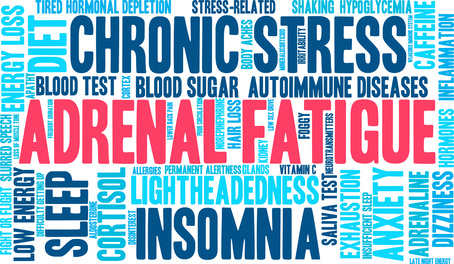 Are you in your 40’s and noticing changes with your monthly?
Are you in your 40’s and noticing changes with your monthly?
Women ‘of a certain age’ really prefer not to mention the ‘M’ word but menopause is being spoken of medically to some as young as in their late 30s. Usually a natural hormonal process that gradually creeps up on us over a number of years – we now seem to be a time where Doctors are suggesting younger ladies are beginning to show the signs much earlier.
Are you beginning to notice changes in your cycle? Perhaps you feel moody or emotional, or are becoming prone to bouts of anxiety? You may be experiencing some night sweats and even hot flushes, and the former usually leads to sleep disruption, particularly around ovulation or when your bleed is due.
For some, the symptoms can severely effect day to day activities, work, relationships, and home life. Lifestyle changes can considerably help such as regular exercise, good nutrition, avoidance of stimulants – the usual offenders, caffeine, alcohol, sugar etc, but perhaps the cause of early menopause is stress – it just wreaks havoc on our hormonal system, only making matters worse.
On researching at some length, it seems that Peri-menopause (the first stage) is the most disruptive period where symptoms become more obvious and unpredictable. Unfortunately, for some, this period can last a few years. Once cycles have ceased for a consecutive twelve months, symptoms appear to reduce but women report that some, typically hot flushes, continue way into the post-menopause stage.
Reflexology can really help to alleviate some of the symptoms
Reflexology is a great treatment that helps reduce the impact of stress on the body. This stress may be caused by menopause or exacerbated by menopause e.g. from lack of sleep etc.
Calming the nervous system regulates the stress hormones and allows the body to rebalance. Although menopausal symptoms may continue for a prolonged period, helping reduce the impact of stress will help to reduce the associated symptoms. Many report a reduction in the number or intensity of hot flushes. Sleep patterns improve, energy increases and anxiety lessens.
In the Alternative Therapies in Health and Medicine Medical Journal (PubMed, Lu WA et al 2011), research reported that Reflexology stimulated the action of the Vagus Nerve – which is part of the parasympathetic nervous system, largely responsible for regulation of the body at rest and in digestion. The word vagus means ‘wanderer’, referring the the fact that this nerve literally connects all over the body to various important organs. When stimulated it can encourage the ‘stress’ response to normalise, helping to bring about the benefits associated with relaxation. The vagus nerve is implicated in anxiety and depression, encouraging it to calm helps to improve those states.
Whilst Reflexology cannot stop the natural process of menopause, it can help to smooth out the disruptive effects on our hormonal systems and be thoroughly relaxing and enjoyable in the process.
Whether you embark on a course of herbs, supplements, acupuncture or HRT, Reflexology has now been proven to calm your nervous and hormonal systems and support you through this phase.
If you’d like to find out more about Reflexology or if you wish to book an appointment, please contact me on 07811 123494, or email through my website. I also offer Hypnotherapy and Abdominal/Fertility Massage. I work mainly from My Therapy Room in Weybridge, or you can see me in The Barron Clinic, Walton-on-Thames, Newlife Fertility Clinic, Epsom and at The Ele King Therapy Room, Cobham.

